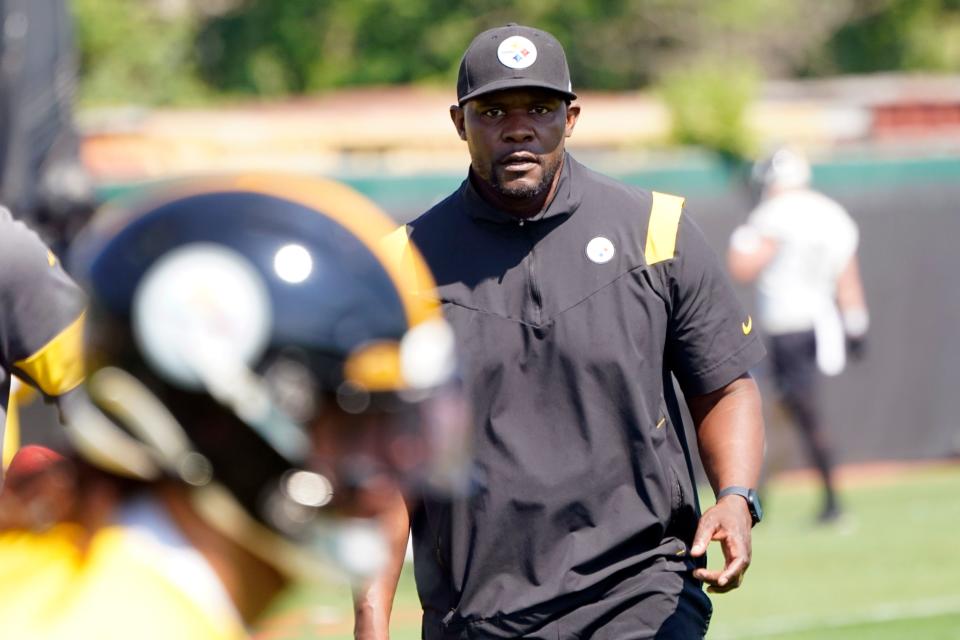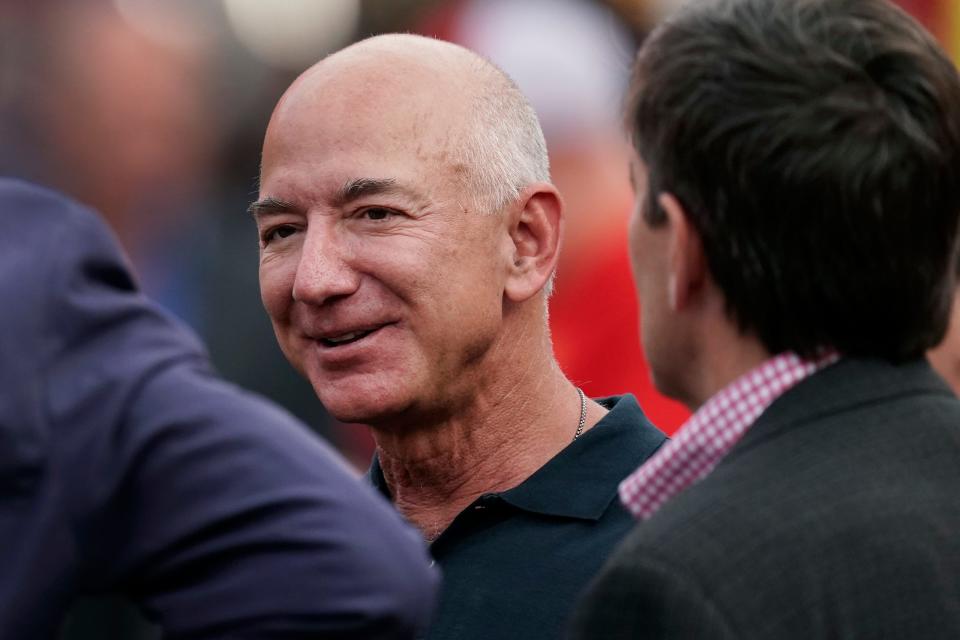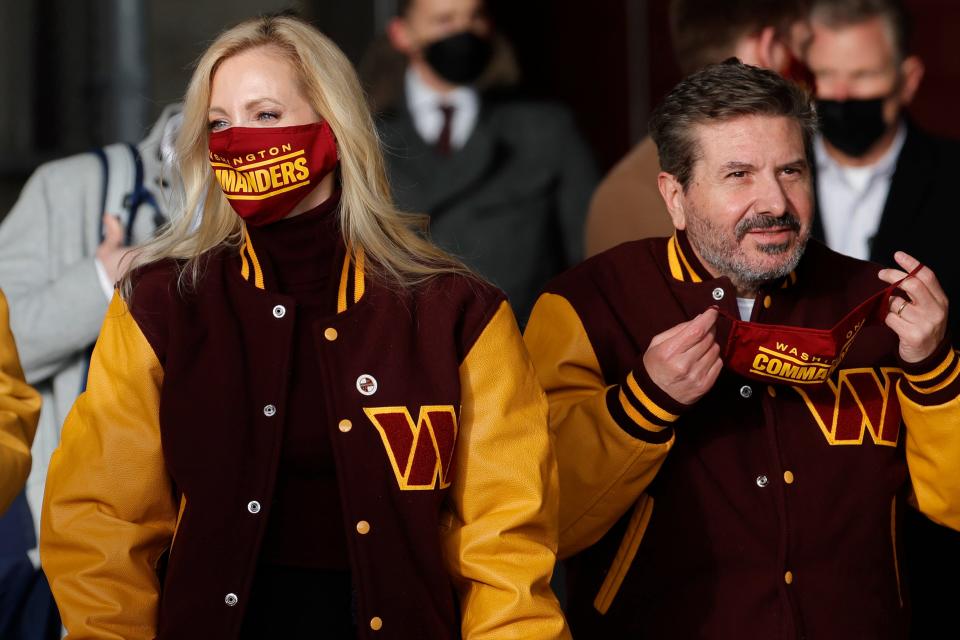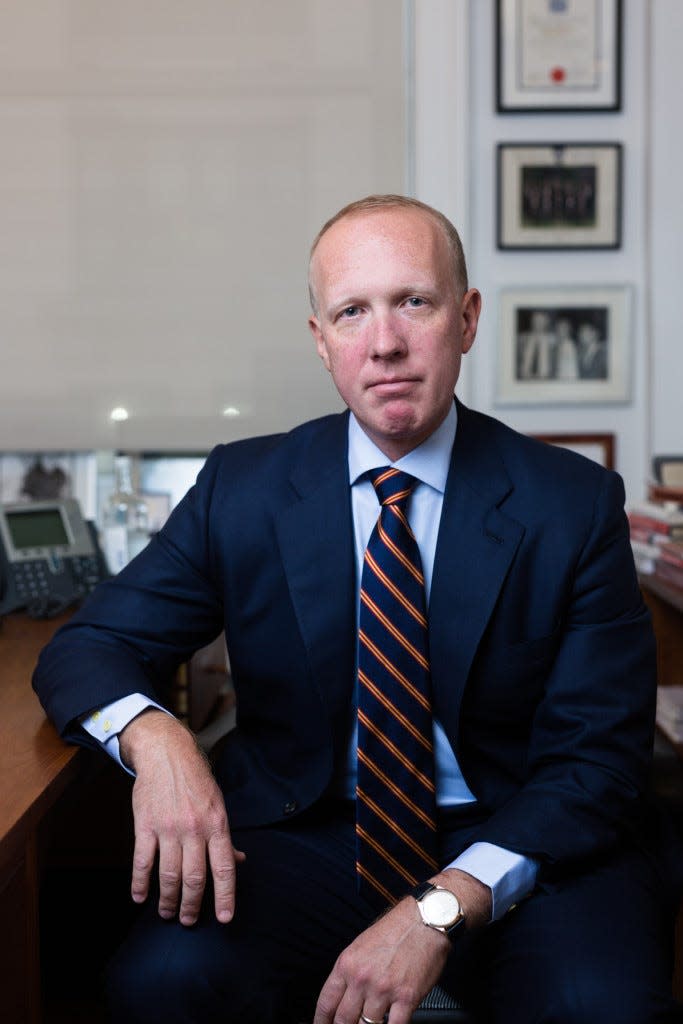NFL has terrible record on Black coaches, owners. Jeff Bezos' Amazon playbook isn't the answer.
The NFL is looking to make a trade. Would swapping Dan Snyder, owner of the Washington Commanders, for Jeff Bezos, the architect of Amazon, be a quick fix?
Replacing an owner under siege with one of the world’s most high-profile businessmen sounds intriguing, but history shows it would not change the NFL’s unacceptable racial imbalance in ownership or management.
Bezos, Amazon’s founder, former CEO and one of the four richest people in the world, reportedly is considering a bid to become majority owner of a team in the NFL, most likely the Commanders. Snyder, the embattled owner of the Commanders, is at the center of several investigations and lawsuits concerning sexual harassment and assault, toxic workplace culture and even fraud on the public and his team’s ticketholders.
Opinions in your inbox: Get exclusive access to our columnists and the best of our columns every day
When an opportunity to buy a franchise comes up, Bezos certainly could outbid any competition. The question is whether his brand of management and the terrible record of how people of color are treated at Amazon would move the NFL forward or leave it stuck where it already is: failing to improve and getting worse on how Black coaches and other employees are treated.
Coaches sue NFL, teams in discrimination cases
On Feb. 1, my client Brian Flores, former head coach of the Miami Dolphins and now senior defensive assistant coach with the Pittsburgh Steelers, filed his case against the NFL, Dolphins and New York Giants, as well as other NFL teams on behalf of himself and a class of other Black NFL coaches.
The NFL has a serious diversity problem: Here's what our USA TODAY Sports investigation found
Flores later was joined in his case by Steve Wilks and Ray Horton, who like Flores also claim they went through sham job interviews, unequal pay and other discriminatory treatment that Black coaches face in the NFL.
The federal lawsuit documents the NFL’s horrendous history of racial exclusion and double standards. After hitting a peak of about seven Black NFL head coaches a few times in the past 20 years, the 2022 season started with only three Black head coaches (9%) in a league where about 70% of the players are Black men.
Opinion alerts: Get columns from your favorite columnists + expert analysis on top issues, delivered straight to your device through the USA TODAY app. Don't have the app? Download it for free from your app store.
Wilks was named interim head coach of the Carolina Panthers in the past month, after his predecessor was let go with a 1-4 record for the season and 11-27 record overall. Driving this stubborn, glaring disparity is the fact that the NFL has never had a Black majority team owner.
What Rooney Rule?
Despite the spotlight put on these issues, NFL teams have not changed their practices. In November, the Indianapolis Colts hired a white ex-NFL player, Jeff Saturday, who has no coaching experience in the NFL or college, as their interim head coach.
Because the coaching slot became available in the middle of the season, the Rooney Rule – which requires teams to interview minority candidates for head coaching and general manager positions – does not apply.
In making the hire, the Colts overlooked dozens of highly qualified and experienced Black NFL coaches, including Marcus Brady, who the Colts recently fired as their offensive coordinator.
Colts owner Jim Irsay is part of the groundswell in the NFL looking for ways to expel Snyder – a welcome show of outrage against owner misconduct, though belated. It took a sexual assault allegation to surface for real momentum to gather for even the possibility of action against Snyder.
'We feel invisible': Washington football team employees experienced decades of abuse, sexual harassment
Meanwhile, the fact that Black Americans are not suitably represented in the league’s coaching and ownership is not prioritized.
The NFL and its teams talk about a desire to address its record on race, while their actions are virtually all geared to avoiding the subject and kicking the can down the road. Rather than engage in a real discussion with Flores, with a neutral mediator involved to facilitate it, the NFL and teams involved in the lawsuit have asked that the court force the case into confidential arbitration, where the proceedings, arguments and evidence could not be viewed by the public.

This is not consistent with a business unafraid of its record and ready to do the hard work to make things right for the Black individuals who have made the NFL what it is today.
This stonewalling also harms the American public. If the NFL, with its unparalleled popularity and resources, will not confront these issues, then why should other businesses and institutions?
South's racist past still harm workers: Unions can help us build a new future
Amazon's business practices raise concerns
Amazon’s practices show similar pattern. After the police killing of George Floyd in 2020, Amazon and its CEOs, Bezos and Andy Jassy, issued various public relations statements on race in the United States. At the same time, Bezos’ company used delay tactics and an adversarial approach to employee complaints and union organizing efforts, rather than engage with employees’ legitimate concerns on discriminatory double standards and managerial misconduct.
Amazon’s record on race and retaliation is notorious and dates far back into Bezos’ tenure, long before he left as the company’s CEO in July 2021. Until August 2020, the elite “S-Team” composed of two dozen of Bezos’ top lieutenants did not include any Black executives.
Much like the NFL, this contrasts with the 26.5% of Amazon’s rank-and-file employees who are Black, with 85% of that number working in Amazon warehouses.

Our firm, Wigdor LLP, also represents women of color who have filed lawsuits contending that trends in Amazon’s hiring and employment practices trap Black and other underrepresented employees in jobs at lower levels and lower pay than their qualifications and job duties merit.
Over and over, Amazon has treated women who raised complaints as enemies or ignored their concerns – as illustrated by cases we are pursuing around the country. Charlotte Newman, a Black woman who works for Amazon in the Washington, D.C., area, filed an internal complaint of discrimination and sexual harassment on Juneteenth in 2020, and although her harasser was terminated three months later, her complaints about broader discrimination in promotions, leveling and other areas were largely ignored.
After Newman filed her federal lawsuit against Amazon in March 2021, more than 220 Harvard Business School alumni and faculty (Newman also is an alum) signed an online petition that called for Amazon to take concrete action on unequal pay and other practices affecting women and persons of color.
There's no deadline on women's equality: Add the Equal Rights Amendment to the Constitution
Nothing in Bezos’ track record makes him a candidate for ownership who would support or lead the charge for a break with the NFL’s past on race.
Who owns teams and is at the top of any organization makes a tremendous difference. Without diverse, and specifically Black, team owners and head personnel, issues of racial inequality will not be seen as a top priority and will not be understood, and efforts will not have the same credibility or be as effective.
In the case on behalf of Flores, Wilks and Horton, the relief that has been requested from the court includes commonsense measures that the NFL could put in place to promote the hiring and retention of Black coaches and the emergence of Black ownership in the NFL.
What LA City Council conversation shows: You don't need to be a white supremacist to be racist
How NFL could promote diversity
Those steps include appointing a court-appointed monitor to work on race-related issues, making interviews and communications regarding hiring and firing decisions about coaches public record, requiring semiannual performance evaluations and formal criteria for coaching jobs, use of standard contracts for coaches, strict guidelines for Black representation in feeder positions such as quarterback coaches and assistant offensive coordinators, and banning forced arbitration for discrimination/retaliation claims.
However, those measures would not be enough on their own without steps to finally introduce Black team owners into the league.
Rather than simply taking up the next white billionaire in line for a franchise, the NFL must increase the influence of Black Americans in the league by taking steps to promote Black ownership. It is within the power of the NFL’s owners to fund a committee dedicated to sourcing Black investors who could take majority ownership of NFL teams.

It would be especially fitting for the Washington Commanders to be the first team owned by a Black majority owner, or at least where the NFL starts such initiatives. Not only did Snyder resist changing the hateful team name for two decades before finally relenting, it was the first owner of the team, George Preston Marshall, who in the 1930s put together a corrupt "gentleman’s agreement" to keep Black players out of the NFL that lasted until 1946, and who made sure his team was the last one to finally add Black players to its roster in 1962.
If the NFL is looking for a quick fix for its Dan Snyder problem, having Jeff Bezos as the new owner of the Commanders might look like a good option that the required three-fourths of team owners would quickly approve.
For the Black players and coaches of the NFL, and Black Americans in general, the move would be another missed opportunity for change.

Douglas H. Wigdor is founding partner of Wigdor LLP in New York.
You can read diverse opinions from our Board of Contributors and other writers on the Opinion front page, on Twitter @usatodayopinion and in our daily Opinion newsletter. To respond to a column, submit a comment to letters@usatoday.com.
This article originally appeared on USA TODAY: Bezos to buy Washington Commanders? That won't fix NFL's race problems

 Yahoo Sports
Yahoo Sports 